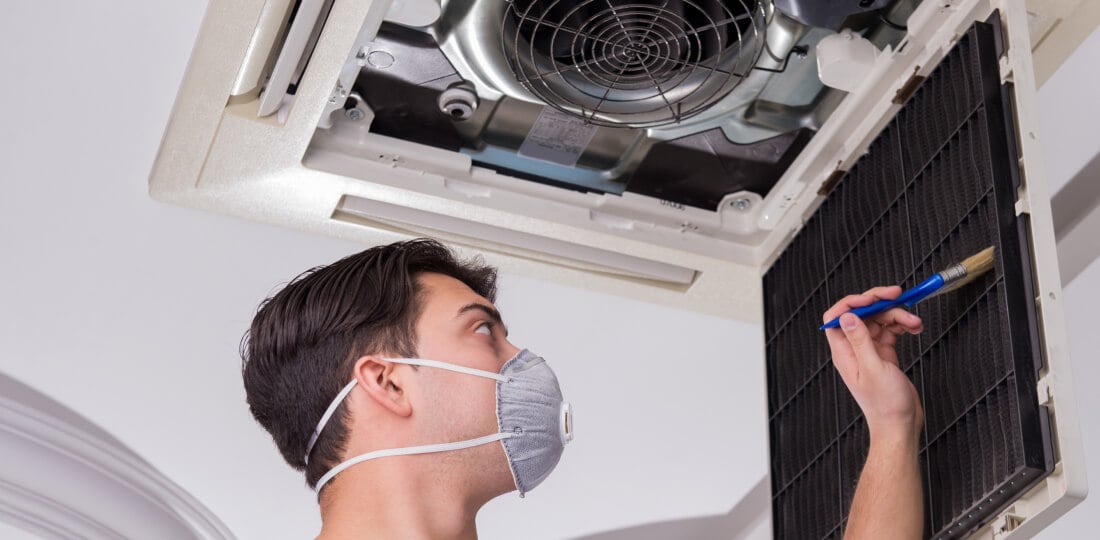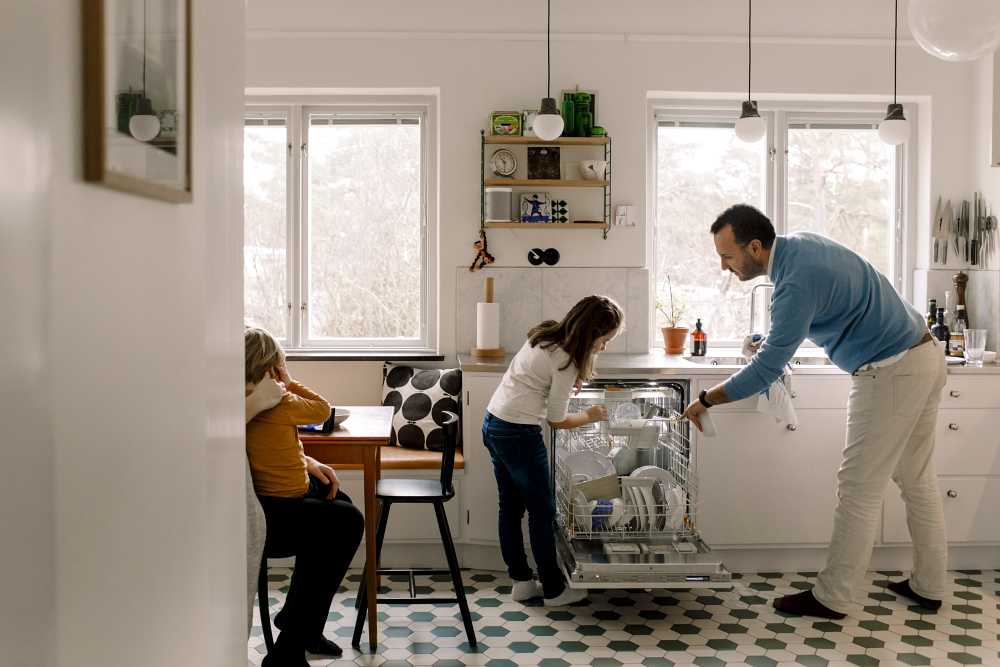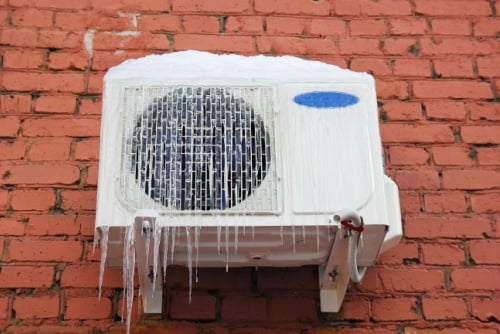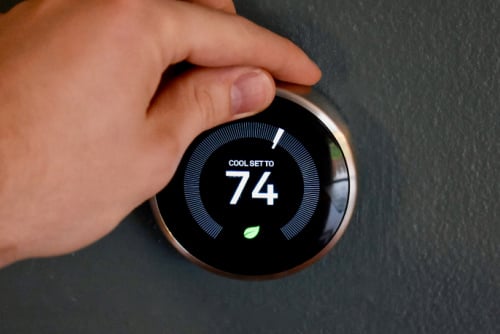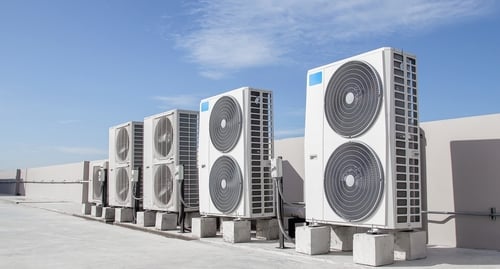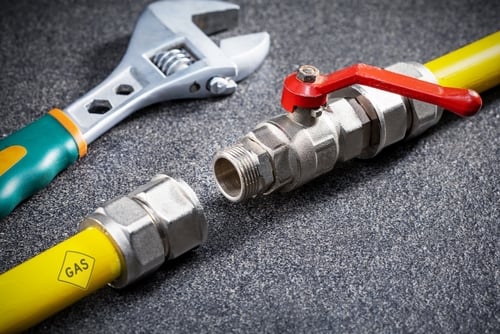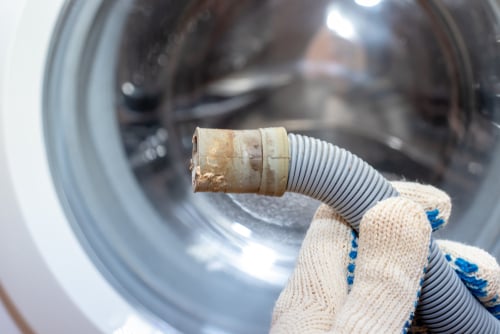Follow these tips and you’ll breathe a little easier about your family’s health.
Learn how you can help make your home's air healthier.
When you think about pollution, you think about the outdoors. Car exhaust, factory emissions, smoke from barbecues and bonfires, pollen and other allergens, it all adds up. At least the air is clean inside your home, right?
Not necessarily. HVAC systems, range hoods and vacuum cleaners have filters for a reason. Allergens, pet fur and dander and volatile organic compounds from paint, cleaners, and synthetic materials in furniture and building components can all compromise your home’s indoor air quality and make you sick. Here are some ways to keep the air inside your home healthy.
Pop in a fresh air filter.
HVAC filters use electrostatic materials to capture airborne dust, pet hair, dander and other irritants. But over time they get clogged, losing their effectiveness and slowing airflow. That’s bad for your health—and it’s not good for your HVAC, either. Remember to change your air filter at least every 90 days.
Speaking of air filters…
Have you ever replaced the filter in your vacuum cleaner? What about your kitchen range hood vent? These common household filters can have a huge impact on indoor air quality. Change—or at least clean—your vacuum cleaner filter once a year, and your range hood filter every six months.
Dirty ducts?
Dust, debris, mold and mildew can build up inside your home’s ventilation system, spreading irritants everywhere. It can be worth it to hire someone to professionally clean your ducts.
Get the lead—and other bad things—out.
Your household dust could contain harmful chemicals and heavy metals like lead that have been there for decades. Sweep your floors at least twice a week with a vacuum cleaner equipped with a HEPA filter. You could go a step further by using plain water and a mop, or a dry microfiber dust mop, to wipe up dust and allergens after vacuuming. And since we track all kinds of stuff on our shoes, including chemicals, pesticides, lead from ground pollution, pollen and dirt, leaving them at the door is one of the best ways to keep floors clean.
Ventilate, dissipate, circulate.
Whether you cook with gas or electricity, your stove is emitting smoke, odors, even nitrogen dioxide and carbon monoxide. Use your vent hood to send those pollutants outside. And make sure you open windows when you’re painting, cleaning or using household products that could produce volatile organic compounds.
Cut the humidity.
Mildew, mold, and dust mites love air that’s warm and humid. But you can thwart them by taking a few simple steps. Keep your indoor air between 30 to 50 percent humidity by using a dehumidifier. Make sure your clothes dryer vents outside your house. Don’t create conditions for mold growth. Fix leaky plumbing, don’t over-water houseplants, and use your bathroom fan to ventilate steam from the shower. Also make sure to empty the drip pan in any window A/C units.
Test for Radon.
Radon is a colorless, odorless, radioactive gas—and a leading cause of lung cancer. It seeps up through the soil and comes into your home through tiny cracks in the foundation. Any house can have radon, not just old or drafty ones. A home test kit is inexpensive to buy and simple to use. Just collect a sample and send it off to a lab. If radon shows up, mitigation systems are available. They’re well worth the investment.
Drag it outside.
Cigarette smoke contains more than 4,000 toxic chemicals, including formaldehyde, arsenic and lead. Secondhand smoke can linger in the air for hours, even staining the walls. If you must smoke, take it outside to protect your indoor air quality—and your family.
At Frontdoor, we know you love getting things done around the house. Staying in control of your to-do list is easier when you can keep the small things from turning into bigger—and more expensive—ones. We’re here to make it easier to prevent problems instead of reacting to them. We help you gain the peace of mind that comes with staying on top of your home’s health.
Want to learn more about how to improve the air quality inside your home, or any other household tips? Download the app if you haven’t already, and chat with a helpful, friendly Frontdoor expert.
Frontdoor assumes no responsibility, and specifically disclaims all liability, for your use of any and all information contained herein.
Was this article helpful?
